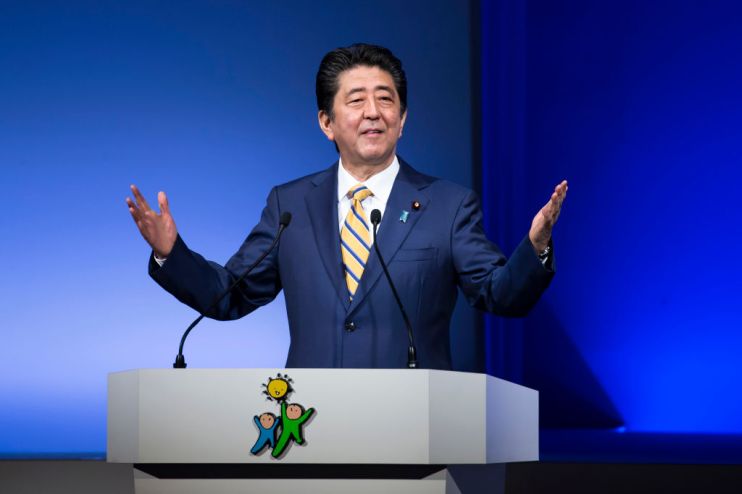Japan approves $122bn stimulus package as governments start spending

Japan’s cabinet has approved a huge $122bn (£92bn) stimulus package to combat stalling growth and insure against global trade tensions.
The government expects the 13.2 trillion yen package to push up growth by 1.4 per cent by the end of the 2021 fiscal year. Economists have cautioned the effects could be lower, however.
Read more: Hey, big spender: IFS boss Paul Johnson on the end of economic orthodoxy
The injection of stimulus comes amid growing calls for governments to loosen the purse-strings to revitalise weak growth from organisations such as the International Monetary Fund (IMF).
Central bankers have also called for back-up, with ultra-loose monetary policy increasingly unable to boost inflation. Japan’s interest rate is currently minus 0.1 per cent, while third quarter economic growth was just 0.2 per cent.
Japan plans to spend the money over 15 months on repairing typhoon damage and upgrading its physical and digital infrastructure.
“Now is the time to adopt bold fiscal policy to overcome various downside risks and secure future safety while the Bank of Japan is patiently continuing powerful monetary easing,” a government spokesperson said.
“The current situation calls for all possible steps to prevent overseas risks from curbing not only exports but also capital spending and private consumption.”
Japan has one of the world’s biggest debt piles, amounting to more than twice its GDP, which could limit the impact of spending in some areas.
Marcel Thieliant, senior Japan economist at Capital Economics, said the fiscal package would also include less fresh spending than the headline figure suggests.
He added: “The bulk of the spending will merely offset the unwinding of previous stimulus measures rather than result in a major fiscal expansion.”
Read more: Donald Trump defends China trade war but says a deal close
Nonetheless, he said, the measures will “reduce the pressure on the Bank of Japan to ease policy and we reiterate our long-held view that the Bank will keep interest rates unchanged”.
Freya Beamish, chief Asia economist at Capital Economics, said the estimate of a 1.4 per cent GDP boost “seems to be on the generous side”.